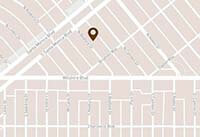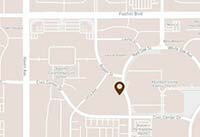Bariatric surgery can mark a life-changing chapter for individuals embarking on the journey toward sustainable weight loss. Diet plays a critical role in post-operative recovery and achieving long-term success. Beyond promoting healing, a carefully planned diet ensures that your body receives the essential nutrients it needs while adapting to its reduced food intake capacity.
Today, we’ll guide you through optimal food choices, along with insights into meal preparation and foods to avoid. This information is tailored for bariatric patients, including those under the care of Los Angeles-based Davtyan Medical Weight Loss and Wellness.
By the end of this post, you’ll have a clear sense of how to structure your post-surgery diet to support both health and weight loss.
Why Post-Surgery Diet Matters
After procedures like LapBand or gastric balloon surgeries, your stomach undergoes significant changes. These adjustments not only reduce your stomach’s size but also alter your body’s digestion and nutrient absorption processes. Choosing high-quality foods is, therefore, an essential step toward recovery and preventing nutritional deficiencies.
But dietary success is about more than just selecting the right foods—how you prepare, consume, and balance these elements is just as critical. Let’s break it all down.
The Essentials of a Post-Bariatric Diet
1. Focus on Soft and Nutrient-Dense Foods
Post-surgery patients are often required to start with a soft food diet to accommodate their healing stomach. Soft foods after bariatric surgery should not only be gentle on the stomach but also rich in vitamins, proteins, and fiber to support recovery.
Examples include:
- Scrambled eggs – Rich in protein and gentle on the stomach.
- Low-fat yogurt – Provides probiotics and a creamy texture for easy digestion.
- Pureed vegetables – Carrots, spinach, or zucchini can be blended to pack nutrients into a soft, palatable dish.
- Mashed avocado – A great source of healthy fats essential for vitamin absorption.
For those looking for inspiration, many post bariatric surgery soft food recipes creatively combine these ingredients for variety. Think zucchini puree topped with soft poached eggs or a protein-packed smoothie made from Greek yogurt and blended fruits.
2. Prioritize High-Fiber Foods for Weight Loss
Fiber foods for weight loss are indispensable in post-bariatric care. Not only do they aid digestion, but they also help maintain satiety, preventing overeating—vital after surgery. Since raw, fibrous vegetables may be hard on the stomach early in recovery, consider:
- Oatmeal – A soft source of soluble fiber great for breakfast.
- Legumes – Lentils and black beans can be blended into soups or purees.
- Canned peaches or pears (unsweetened) – Offer gentle fiber without being rough on your stomach.
Gradual reintroduction of foods high in fiber is crucial. Listen to your body and consult your physician or nutritionist for the best integration practices.
3. Prioritize Lean Protein
Protein is often highlighted as a critical component for bariatric patients. It helps maintain muscle mass during rapid weight loss and promotes satiety. Aim for at least 60-80 grams of protein daily through options like:
- Skinless poultry (blended or finely shredded).
- Fish – Salmon or cod are excellent choices for their soft texture and omega-3 content.
- Low-fat cheese – An easy, protein-packed snack.
- Protein powders – Mix with water or milk substitutes to simplify reaching your daily target.
High-protein foods also work well in creative recipes. For instance, baked fish dressed with a yogurt-based sauce makes for a flavorful, bariatric-friendly main course.
4. Stay Hydrated with the Right Beverages
Adequate hydration is a vital yet often overlooked part of a post-surgical diet. Aim for at least 64 ounces of fluids daily while avoiding drinks that hinder recovery. Smooth and non-carbonated beverages are best for sensitive stomachs, such as:
- Clear broths – Provide hydration and flavor while being easy on the stomach.
- Herbal teas – Calming and free of added sugars.
- Diluted fruit juices – Lemon juice in water can add variety.
It’s essential to avoid drinking fluids with meals, as this can cause discomfort or impede effective digestion.
5. Balance Your Meals Using Food Prep for Weight Loss
Proper planning ensures you consume nutrient-dense foods without relying on unhealthy, convenience-driven choices. Food prep for weight loss can simplify meal planning while encouraging better portion control. For post-bariatric patients, food preparation should focus on:
- Portioning meals into small, manageable servings to avoid overeating.
- Keeping easy-to-grasp foods, such as mashed sweet potatoes or soups, refrigerated for quick access.
Consistent meal prepping enables you to stay committed to your new eating habits while reducing the mental load of daily meal planning.
Foods to Avoid After Bariatric Surgery
Breaking old eating patterns is one of the critical steps to sustained success, and certain foods should be avoided altogether during your recovery.
Avoid These Common Triggers:
- Fried and High-Fat Foods – They can cause nausea and discomfort due to the reduced size of your stomach.
- Sugary Foods and Drinks – Lead to a condition called “dumping syndrome,” leaving patients nauseous or fatigued while spiking their blood sugar.
- Carbonated Beverages – Can create bloating and undue pressure on the stomach.
- Tough Meats – Steak or pork chops may be challenging to digest and should be reintroduced only later in recovery.
- Nuts and Seeds – While healthy, these are hard to process immediately following surgery.
Remaining vigilant about foods to avoid after bariatric surgery will prevent unnecessary complications and ensure a smoother recovery.
Transitioning Back to Normal Foods
Many patients wonder when they can return to regular eating habits. It’s vital to follow your surgeon or dietitian’s advice on introducing solid foods slowly, usually beginning four to six weeks after surgery. Consider starting with steamed vegetables, soft grains, and unprocessed proteins.
Over time, longer-lasting dietary changes will help you achieve and maintain lasting weight loss while supporting your overall health.
Key Takeaways for Bariatric Patients
Making high-quality food choices after bariatric surgery sets the foundation for long-term success. Focusing on soft, nutrient-dense foods, staying hydrated, and avoiding trigger foods are steps that maintain health and promote sustainable weight loss.
If you’re considering bariatric surgery or seeking expert support, Davtyan Medical Weight Loss and Wellness in Los Angeles can guide you every step of the way. From LapBands to gastric balloons, Dr. Davtyan and his experienced team specialize in personalized surgical weight loss care.
Take control of your health today—reach out to Davtyan Medical Weight Loss and Wellness for a consultation and start your weight loss transformation.






















